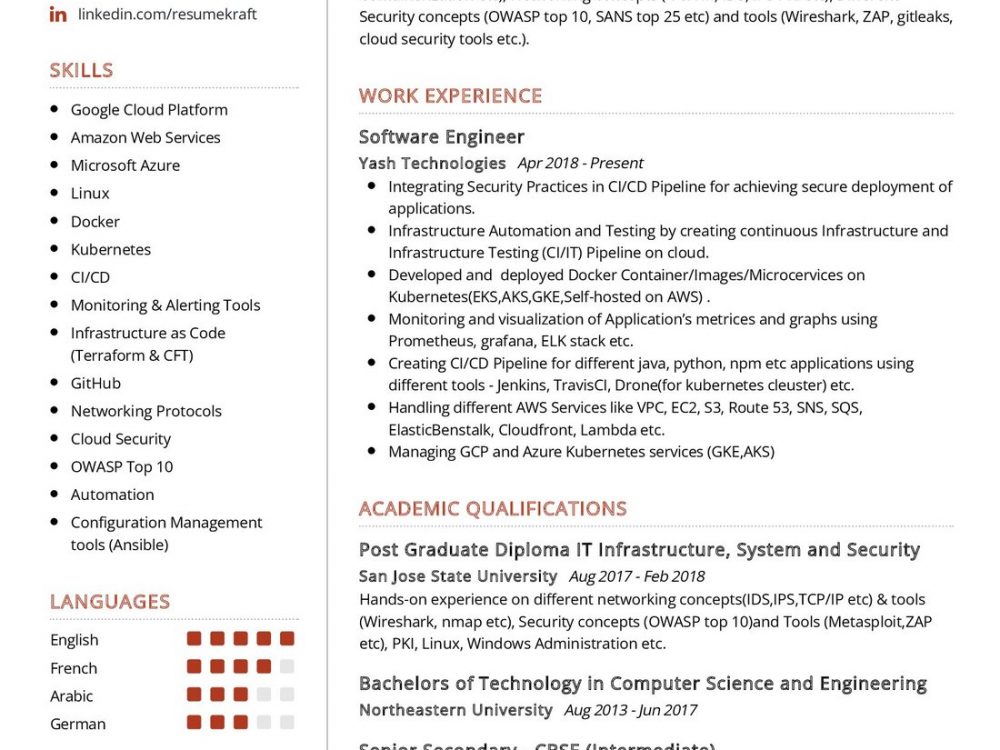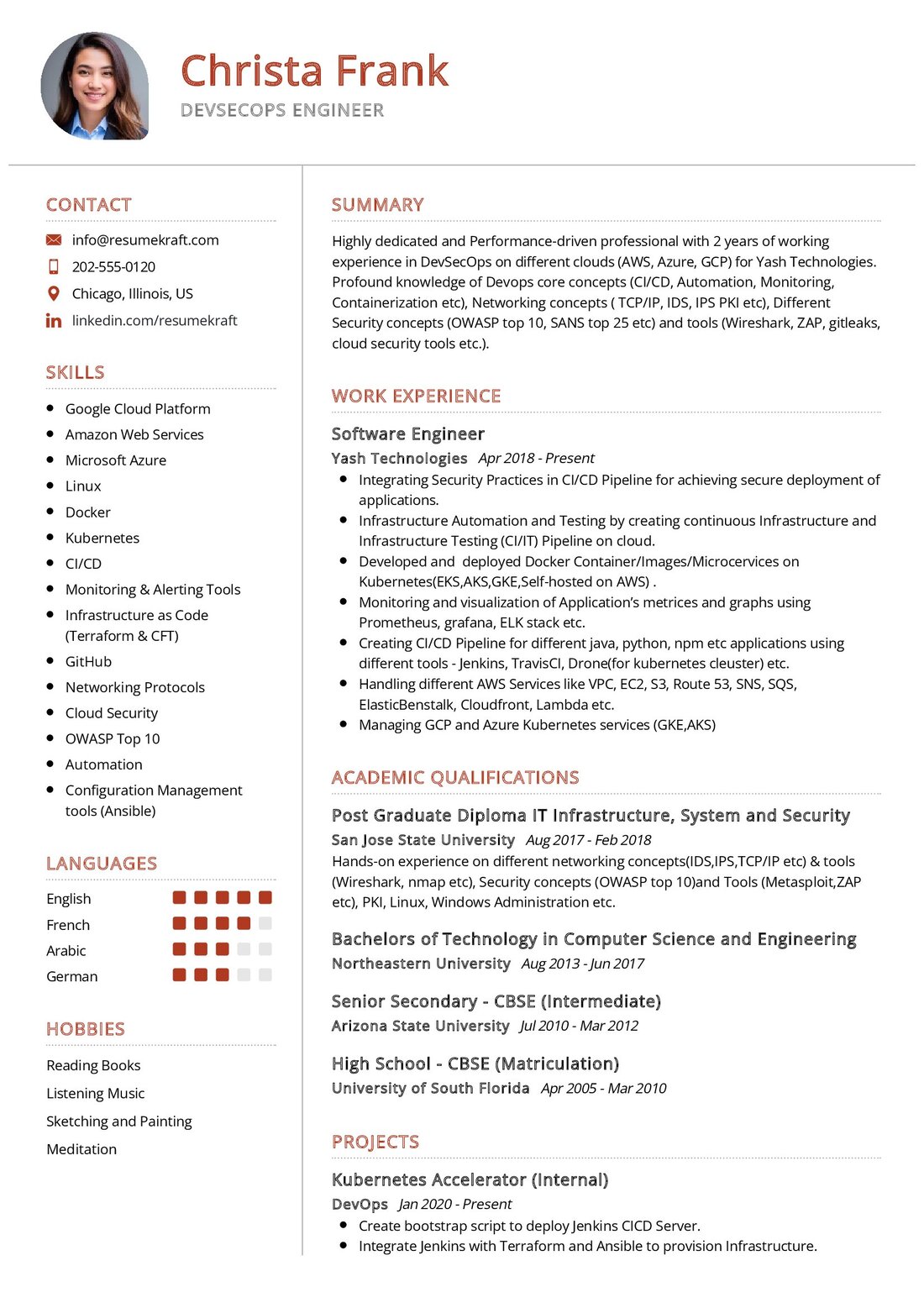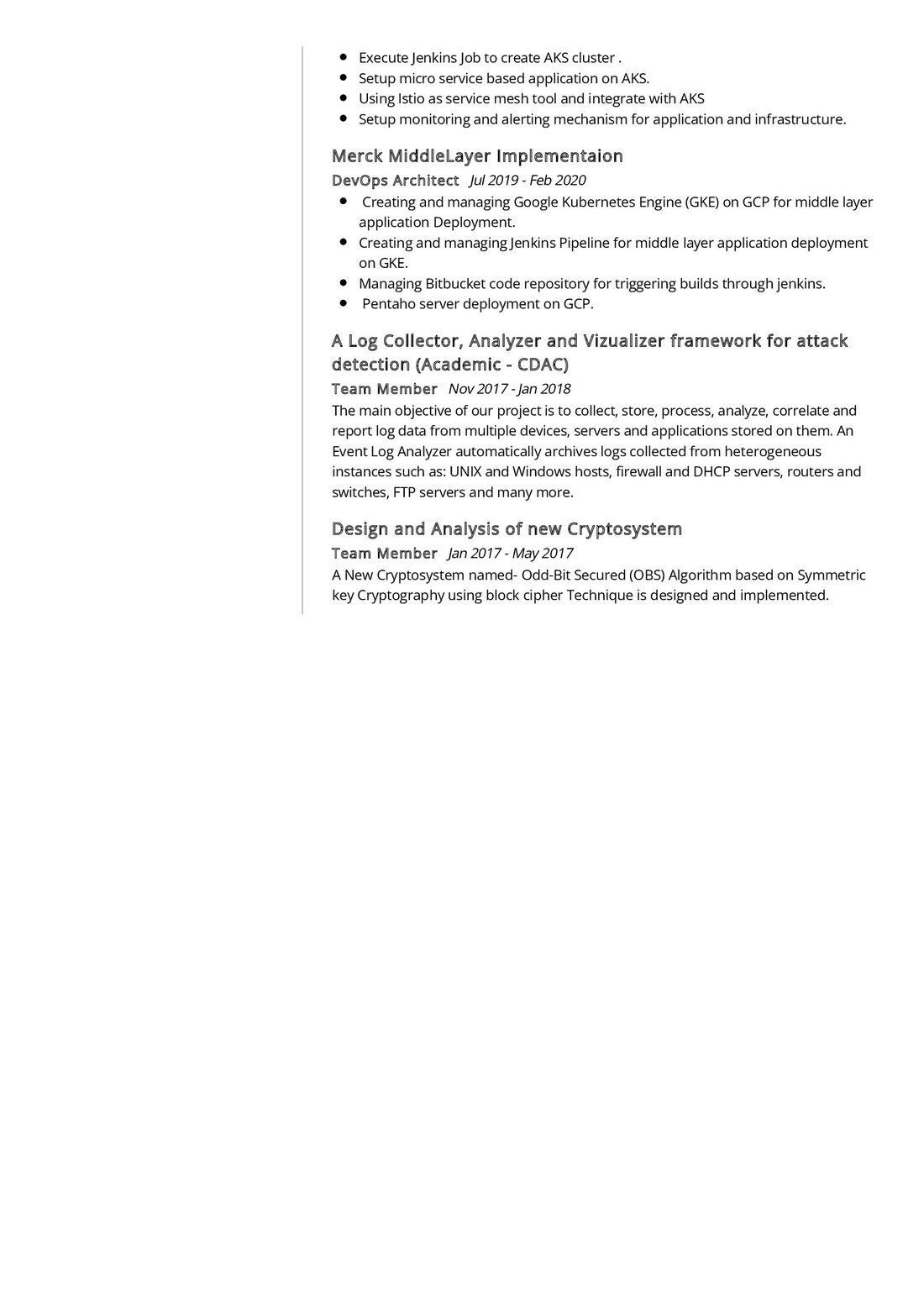What is the Role of a DevSecOps Engineer?
In the dynamic world of software development, the role of a DevSecOps Engineer stands as a pillar of security, ensuring the seamless integration of development, security, and operations. This role is not just about technical expertise; it is about fostering a culture of security awareness and proactive risk management in the agile development process. Let’s delve deeper into the role of a DevSecOps Engineer, a professional who wears many hats, orchestrating security measures while facilitating a smooth development workflow.
A DevSecOps Engineer is responsible for embedding security practices and protocols into the DevOps process. They work closely with developers and IT staff to identify and mitigate security vulnerabilities at every stage of the development lifecycle. Their role is pivotal in ensuring that security is not a bottleneck but a facilitator in the rapid and agile development process, fostering a culture where security is everyone’s responsibility.
What are the DevSecOps Engineer Job Requirements?
Embarking on a career as a DevSecOps Engineer demands a rich background in IT security and a deep understanding of DevOps practices. Let’s explore the prerequisites that one needs to fulfill to step into this role:
- A Bachelor’s or Master’s degree in Computer Science, Cybersecurity, or a related field, laying a strong foundation in the technical domain.
- Profound knowledge of security systems, including firewalls, intrusion detection systems, anti-virus software, authentication systems, and log management.
- Experience in working with DevOps tools such as Jenkins, Docker, and Kubernetes, showcasing your hands-on experience in the DevOps landscape.
- Understanding of scripting languages such as Python, Perl, or Ruby, a skill set that enables you to automate security processes efficiently.
- Certifications such as Certified Information Systems Security Professional (CISSP) or Certified Information Systems Auditor (CISA) can be a testament to your expertise in the security domain.
Building a portfolio that showcases your experience in managing security in a DevOps environment can be a strong selling point in your resume.
What are the Responsibilities of a DevSecOps Engineer?
The role of a DevSecOps Engineer is a rich tapestry of responsibilities, each thread representing a critical aspect of security in the DevOps landscape. Let’s unravel the core responsibilities that define this role:
- Implementing and managing security solutions, ensuring a robust defense against security threats.
- Collaborating closely with development and operations teams to integrate security measures into the development lifecycle.
- Conducting security assessments and code reviews to identify vulnerabilities and suggest mitigations.
- Developing and maintaining documentation for security systems, procedures, and security incidents.
- Responding promptly to security incidents and leading the efforts to mitigate the risks.
- Training and educating teams on security best practices, fostering a culture of security awareness.
Each responsibility is a testament to the proactive role a DevSecOps Engineer plays in safeguarding the organization’s assets while facilitating a smooth development process.
DevSecOps Engineer Resume Writing Tips
Creating a resume that stands out in the competitive job market is a craft that demands a strategic approach. Here are some tips to guide you in crafting a resume that narrates your story effectively:
- Highlight your experience in implementing security solutions in a DevOps environment, showcasing your role in fostering security and efficiency.
- Detail the security protocols and tools you have worked with, painting a picture of your technical proficiency.
- Include case studies or examples where you successfully mitigated security risks, showcasing your problem-solving abilities.
- Highlight any cross-functional collaborations, showcasing your ability to work seamlessly with diverse teams.
- Include certifications and courses that you have undertaken, showcasing your commitment to continuous learning.
Each tip is a stepping stone towards crafting a resume that is both compelling and reflective of your expertise and experience.
DevSecOps Engineer Resume Summary Examples
Your resume summary is the gateway to your career story, offering a snapshot of your journey so far. Here are some examples to inspire you:
- “Experienced DevSecOps Engineer with a deep understanding of integrating security protocols in a DevOps environment, proficient in Python and Jenkins.”
- “Detail-oriented DevSecOps Engineer with a track record of identifying and mitigating security vulnerabilities, a team player fostering security awareness.”
- “Proactive DevSecOps Engineer with expertise in implementing robust security solutions, a problem solver with a keen eye for detail.”
Each summary offers a glimpse into your expertise, setting the stage for the detailed narrative that follows in your resume.
Create a Strong Experience Section for Your DevSecOps Engineer Resume
The experience section is the heart of your resume, narrating your journey in the professional landscape. Here’s how you can craft a compelling experience section:
- Detail your role in implementing security solutions, showcasing the impact on the organization’s security posture.
- Highlight your experience in cross-functional collaborations, showcasing your role as a facilitator in the DevOps process.
- Include examples of security assessments and code reviews you have conducted, showcasing your proactive approach to security.
- Detail your role in responding to security incidents, showcasing your crisis management skills.
Each point in your experience section is a chapter in your career story, narrating your growth and contributions in the DevSecOps landscape.
Sample Education Section for Your DevSecOps Engineer Resume
Your educational background is the foundation upon which your career is built. Here is how you can detail your educational qualifications:
- B.Sc. in Computer Science, XYZ University, 2015
- Master’s in Cybersecurity, ABC University, 2018
- Certified Information Systems Security Professional (CISSP), 2020
Each qualification is a milestone in your educational journey, showcasing your academic prowess and commitment to learning.
DevSecOps Engineer Skills for Your Resume
Your skill set is a rich palette of technical and soft skills, each adding a unique hue to your professional portrait. Let’s detail the skills that a DevSecOps Engineer should showcase:
Soft Skills:
- Leadership and team collaboration, fostering a culture of security awareness.
- Problem-solving abilities, navigating through challenges with a strategic approach.
- Communication skills, facilitating seamless collaboration across teams.
- Attention to detail, ensuring meticulous implementation of security protocols.
Hard Skills:
- Proficiency in scripting languages such as Python, Perl, or Ruby.
- Experience with DevOps tools like Jenkins, Docker, and Kubernetes.
- Deep understanding of security systems and protocols.
- Knowledge of regulatory compliance and standards.
Each skill is a testament to your expertise and the value you bring to the DevSecOps role.
Most Common Mistakes to Avoid When Writing a DevSecOps Engineer Resume
As you craft your resume, steer clear of common pitfalls that can hinder your journey to landing your dream job. Here are the mistakes often seen and how to avoid them:
- Using a generic template, which fails to showcase your unique fit for the role.
- Listing job duties without showcasing your achievements, a narrative that lacks depth.
- Ignoring the cover letter, a missed opportunity to narrate your story and connect with the potential employer.
- Overloading your resume with technical jargon, a strategy that can obscure your true value.
- Failing to proofread, a mistake that can leave a dent in your professional image.
Each mistake is a pitfall, avoid them to craft a resume that is both authentic and compelling.
Key Takeaways for Your DevSecOps Engineer Resume
As we reach the end of this guide, let’s recap the key points to keep in mind while crafting your DevSecOps Engineer resume:
- Emphasize your role in fostering a culture of security awareness, showcasing your leadership in the DevSecOps landscape.
- Detail your technical proficiency, painting a vivid picture of your expertise in security systems and DevOps tools.
- Highlight your educational background, showcasing the strong foundation upon which your career is built.
- Include a rich skills section, detailing both your technical and soft skills, showcasing the diverse skill set you bring to the role.
Finally, feel free to utilize resources like AI Resume Builder, Resume Design, Resume Samples, Resume Examples, Resume Skills, Resume Help, Resume Synonyms, and Job Responsibilities to create a standout application and prepare for the DevSecOps Engineer job interview.
With this rich tapestry of insights and tips, you are now equipped to craft a resume that is a true reflection of your journey, your skills, and your aspirations. Remember, your resume is not just a document; it is a canvas where you paint your career story, a story of growth, learning, and leadership. Best of luck!



